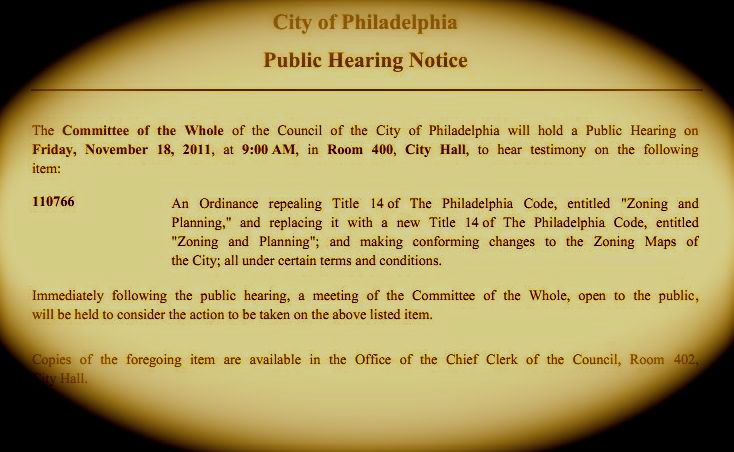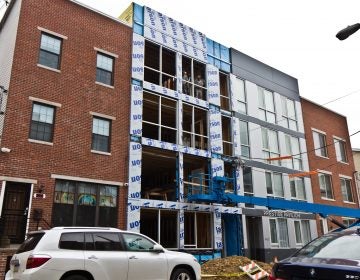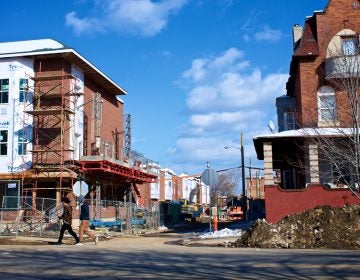City Council considers an alternate route to zoning reform

Four-and-a-half years ago, as PlanPhilly readers know, City Council enacted an amendment to the home rule charter—approved by more than three quarters of voters—creating the Zoning Code Commission and charging it with the task of reforming Philadelphia’s zoning code.
That amendment, which Council wrote, established the membership of the Commission, described its guiding principles, and laid out a timeline for the completion of zoning reform.
The timeline requires that “Council shall either enact into law, reject or table the Commission’s Zoning Code Proposals contained within the final report in their entirety” within sixty days or five Council sessions after the report is issued. The ZCC is expected to issue its final report next week.
Last week, 10th-District Councilman and Zoning Code Commissioner Brian O’Neill introduced a bill that, if enacted, would give Council the ability to amend the Commission’s final report rather than just accept it or reject it in its entirety. In theory, it could allow Council to ignore the ZCC’s final report altogether.
Bill No. 110766 does seven things:
- Section 1 repeals Title 14 of the Philadelphia Code, the entire chapter titled “Zoning and Planning.”
- Section 2 re-adopts §14-1605(1) of the current Code, regarding Regulated Uses, and §14-1604(1), on Outdoor Advertising and Non-Accessory Advertising Controls.
- Section 3 adopts a new Title 14, attached to the bill as Exhibit A. Exhibit A is the preliminary report of the Zoning Code Commission, as submitted to City Council in May, 2011.
- Section 4 amends the new Title 14 according to Exhibit B, the 40 recommendations Council sent to the ZCC after closing public hearings on the Commission’s proposals.
- Section 5 amends the Zoning Maps of the City of Philadelphia according to a number of conversion tables.
- Section 6 directs the Commissioner of L&I, the Chair of the Planning Commission, and the Commerce Director to submit a report to Council, one year after the effective date of the new code, analyzing the effects of the new code and making recommendations for updating it.
- Section 7 sets the effective date of the new code at eight months from the time the bill is enacted.
A number of things remain unclear about this bill. For example, it’s not certain whether Council even intends to enact it. At the end of the last meeting of the ZCC, on October 26th, only a handful of issues related to provisions in the draft code remained unresolved between Council and the Commission. But members of Council, in particular Bill Green, made it clear that they wanted to resolve those remaining issues, and to do so according to the recommendations Council sent to the ZCC. In turn, the ZCC was at that point unwilling to accept five of Council’s recommendations, though negotiations are ongoing, according to members of both bodies.
If the two sides can reach a consensus, Council may still choose to simply adopt the Commission’s final report as suggested in the original Charter amendment. But if the ZCC does not agree to incorporate the remaining handful of Council’s amendments into its report, Bill No. 110766 will give Council a way to insert those amendments into the new code.
It’s also unclear whether the new code that’s attached to the bill as Exhibit A will remain as it is. The preliminary report of the ZCC was issued in May. Since then, the Commission has made dozens of changes to the code in cooperation with various civic associations and other stakeholder groups. If Council does intend to enact the preliminary report rather than the final report, those changes will be lost.
Moreover, if Council members decide to enact Bill No. 110766 rather than complete the zoning reform project according to the Charter amendment, nothing stops them from adding even more amendments than the forty they initially sent to the Commission after holding public hearings. Of course, even if a new code were to be passed according to the Charter timeline, Council could amend it however it wanted as soon as the code is enacted.
All of this is well within the legal power of City Council, and Councilman Green has suggested several times in the past that Council could take this route if it were unsatisfied with the Commission’s final report. As Green told the crowd at a zoning discussion co-hosted by PlanPhilly at the Daily News/Inquirer building in September: “If we can’t get close enough where we’re willing to pass [the draft], City Council can, and I believe would, either at the end of this year or early next year, take all of this work and pass a new zoning code outside of the process … City Council can change the zoning code today and short-circuit this whole process.”
A number of stakeholders who’ve been involved in discussions about zoning reform since the process began four years ago were unwilling to make on-the-record comments about O’Neill’s bill, saying it’s yet to be seen how the rest of the reform process will play out. At the time this article was written, Councilman O’Neill, who is on the homestretch of a tight re-election campaign, had not responded to requests for comment. For its part, the Zoning Code Commission views this bill as a symbol of Council’s desire to pass a new code by the end of the year.
“We’re not viewing this as a problem at all,” said Peter Kelsen, a ZCC member and attorney at Blank Rome. “It’s basically a placeholder bill.” Kelsen also said he believes Council will replace Exhibit A with the ZCC’s final report once it’s issued, incorporating the work that’s been done on the draft since May.
Eva Gladstein, the Commission’s executive director, said that she is not concerned about Council using O’Neill’s bill to sidestep the Charter-mandated timeline. She pointed out that Council set up that timeline in the first place, and that this bill is simply a different way of getting to the same goal of updating Philadelphia’s zoning code. “I have felt all along that they’ve really owned this process,” Gladstein said.
But since the bill opens the door for more Council amendments prior to passage of the code, Gladstein said, the clarity of the reformed code could potentially be compromised. “I think people know who did the work … ” Gladstein said. “I’m more concerned about the degree of uncertainty as to what the product will be.”
Bill No. 110766 is scheduled for a public hearing and consideration by the Committee of the Whole on Friday, November 18, at 9 a.m., in City Hall, Room 400.
PlanPhilly will update this article as the story develops.
Correction: An earlier version of this article wrongly identified the portions of the Philadelphia Code re-adopted in Section 2 of Council Bill No. 110766. They are §14-1605(1) and §14-1604(1), not §14-606(1) and §14-604(1). PlanPhilly regrets the error.
Contact the reporter at jaredbrey@gmail.com
WHYY is your source for fact-based, in-depth journalism and information. As a nonprofit organization, we rely on financial support from readers like you. Please give today.






